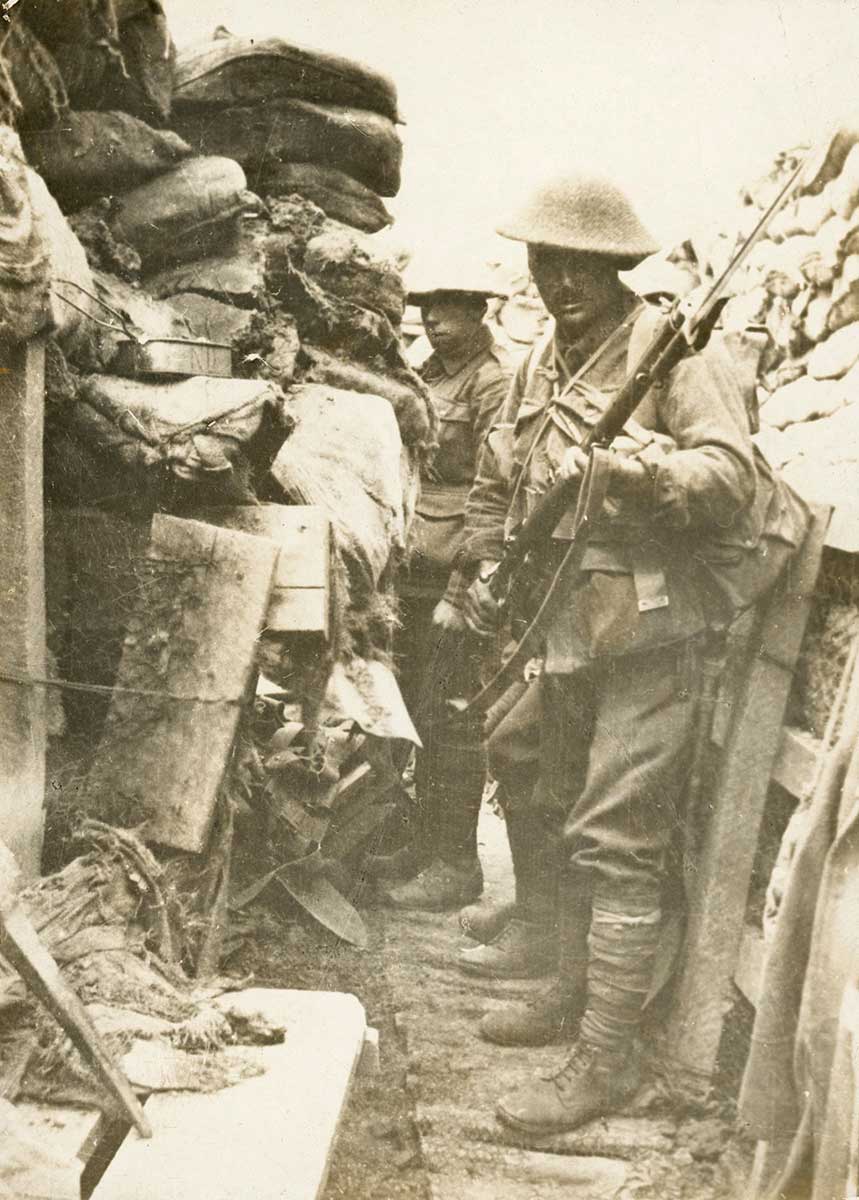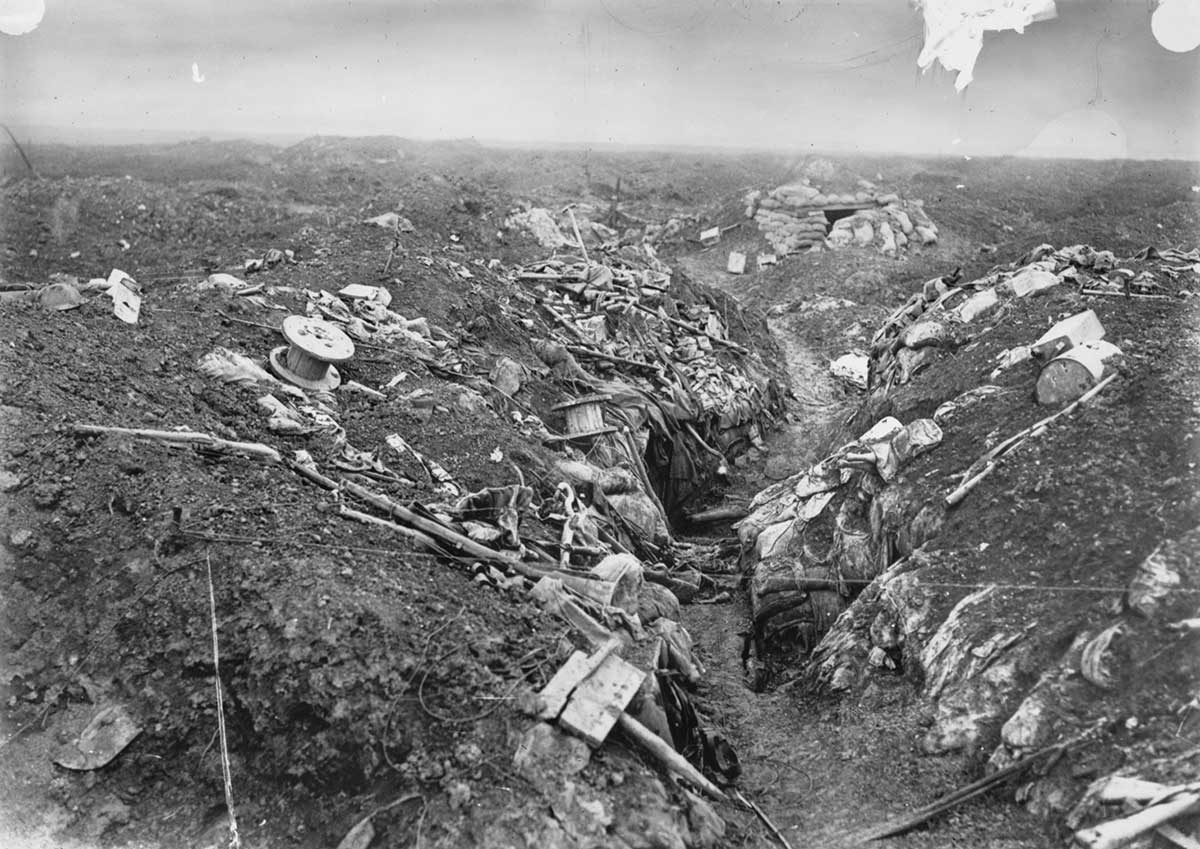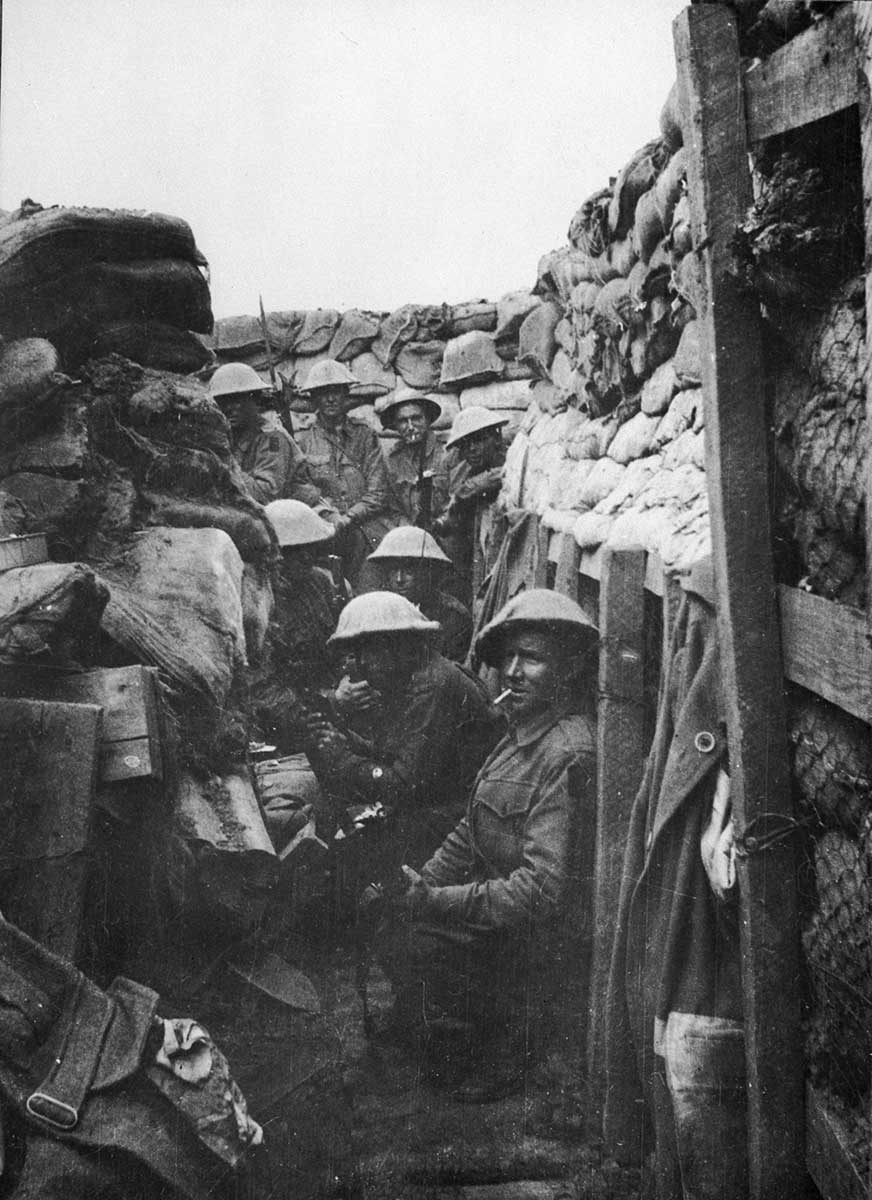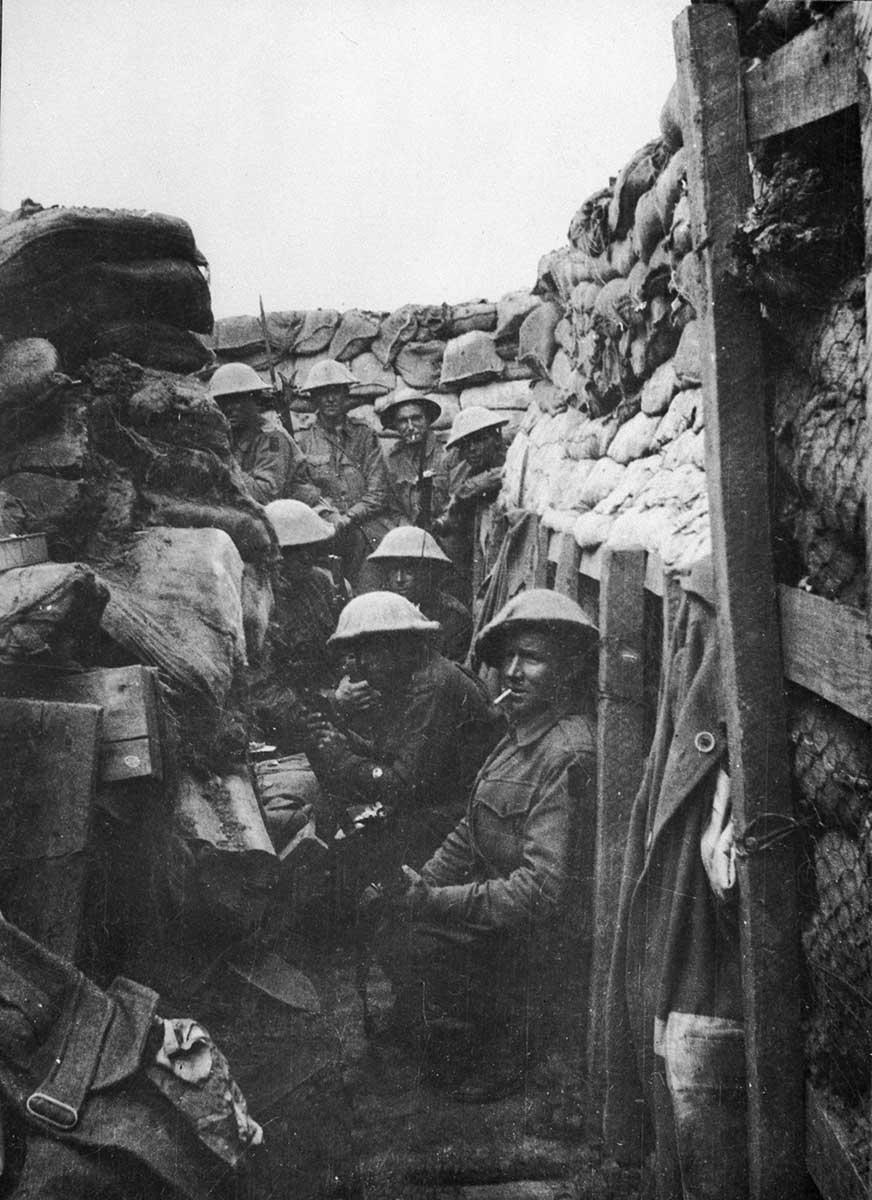Learning module:
War correspondents
War correspondents
15. What war feels like

The soldier’s name is Benjamin James. He is suffering a condition known as ‘shell shock’, a psychological disturbance caused by prolonged exposure to active warfare, especially after being under bombardment, which will later become known as Post-Traumatic Stress Disorder (PTSD).
He takes a big drag on his cigarette.
‘War is hell. And trench warfare is hell on stilts. I’m talking about 500 kilometres of front between opposing armies. This massive long line runs all the way from the English Channel, across Belgium, through north-eastern France to the Swiss border. After the Franco-Prussian War between France and Germany from 1870 to 1871, the French were afraid that Germany would invade straight over the border they share. So they built a cluster of forts around Verdun, defending France from its powerful neighbour. Germany just went around it! That idea was the “Schlieffen Plan”. That’s why the Western Front runs from so far north.’
He pauses, thinks for a while, and continues, ‘Millions of troops on the Western Front. Total stalemate — I mean you couldn’t move. Thousands of men died to gain a measly few hundred metres of territory. Probably lose it again the next week. Look, at the start of this war, military leaders thought attack was the best strategy, but with machine guns and tanks, well, defence is really powerful now. Trenches were for defence — stop the enemy getting any closer.’
He stands up. ‘Walk with me...’
You get up walk along the dock.
‘The trenches on either side could be just 50 metres apart, other places more like a kilometre. Sometimes you could hear the enemy talking. The sound of artillery fire was never-ending some days. That’s what has shot my nerves.’

Tears well up in his eyes.
‘Those trenches were inhuman. The smell of dead bodies was everywhere. The smell of death. Winters are long, cold and wet. Trenches constantly water logged and muddy. If you don’t watch yourself you’ll get trench foot — your foot’s wet for so long, it starts to rot and deform and eventually drop off. Difficult getting supplies of fresh water and food to the front. So the food on the front line? Yuck. We sometimes survived on bully beef (I thought it smelled like cat food), bread and biscuits. If you got a chance to go for a walk you were carrying 30 kg of equipment. Barbed wire everywhere. I was lucky I was never gassed but we all had gas masks. Both sides started using mustard gas to poison soldiers on the other side. Horrific.’
His head is in his hands now.
‘I’ll never forget Passchendaele ... mud. More mud. Cold. Rain. Rats as big as cats. The horror of Polygon Wood. Death all around. So many friends gone...’
He goes silent. He will speak no more today.
You offer him some consoling words and thank him for his time.
Your task
You’ve got more than enough to write a story about the conditions of trench warfare. You also want to educate your reader. You know there are a lot of new words used in what you have been writing. Rather than have a glossary, you want to find a way to explain these new keywords in the text you are writing.
You and the other journalists from the boat have been sharing around what you’ve been writing. Another journalist, a Frenchman named Bertrand Clair, has done a great job of explaining keywords in the text. Here’s what he wrote, with the words he defined in bold:
The causes of the war are many. Firstly, there are the entangling alliances that the major powers had with each other. Alliances are agreements between countries to support each other in times of trouble. Then there are three ‘isms’ that help explain why the world went headlong into a destructive war. The powers of Europe, especially Germany and Britain, believed in militarism, judging that having and using a powerful military was important to promote their national interest. Many European countries also believed in nationalism, meaning that they viewed their own nation as superior to others. There was also the idea of imperialism (the desire to extend one’s domination by colonising and attacking other nations), common in the early 1900s, which drove many of the Europeans. These four factors together go a long way to explaining the outbreak of war.
You want to write something about the conditions of the war, while explaining these keywords in the text, as Bertrand did:
(if you don’t know what all of these words mean, you might need to use a dictionary)
- trench
- Western Front
- stalemate
- artillery
- mustard gas
Write a paragraph of between 5 to 7 sentences about the conditions, explaining the keywords as you go.
You finish up your writing. It has been an emotional day. You board a train for London, arriving early the next morning.







